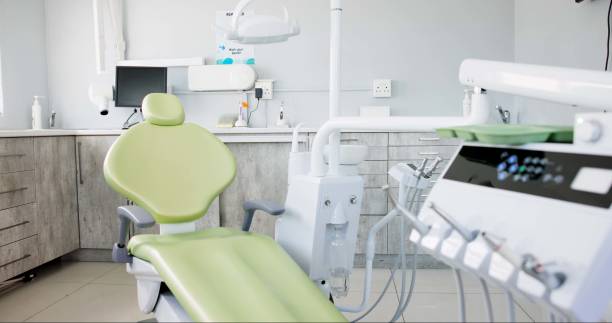
10 Apr The Importance of Maintaining Patient Loyalty When Selling Your Dental Practice
Selling a dental practice is a major milestone. Whether you’re planning retirement, relocating, or shifting career paths, transitioning out of your practice takes strategic planning. While most dentists focus on financial valuation, legal contracts, and buyer negotiations, patient loyalty is often overlooked.
Maintaining patient loyalty during and after the sale of your dental practice is crucial. Not only does it affect the immediate value of your practice, but it also impacts its long-term viability and your professional legacy. This blog will explore why patient loyalty matters in the sale process, how it influences buyer confidence, and what practical steps you can take to ensure a smooth transition for your patients and staff alike.

Why Patient Loyalty Matters in a Practice Sale
1. It Adds Tangible Value to Your Practice
In any service-based business, loyal customers are the lifeblood of revenue. In dentistry, your patient base isn’t just a list of names—it’s the financial backbone of your practice. A loyal, engaged patient base represents:
-
Stable cash flow
-
Predictable appointment schedules
-
Higher treatment acceptance rates
-
Stronger word-of-mouth referrals
When prospective buyers evaluate your practice, they review financial records and assess risk. A practice with a strong retention rate and a loyal patient base offers lower acquisition risk and higher immediate returns.
2. It Creates a Seamless Transition for the Buyer
Patients who feel connected to your practice—whether through your team, your communication, or your commitment to care—are more likely to stay post-sale. Patients may leave if they perceive the transition as abrupt, poorly communicated, or impersonal. This churn challenges the new owner and may lead to short-term revenue loss.
On the other hand, if patients trust the process and feel reassured, they’re more likely to accept the new dentist and continue with scheduled care. A smooth handoff preserves continuity, which benefits both the buyer and the patient.
3. It Upholds Your Professional Reputation
Selling your practice doesn’t mean severing ties with your professional legacy. Many retiring dentists stay in the community, teach part-time, or engage in dental organizations. How you handle the transition reflects your professionalism and ethics. Maintaining a loyal patient base signals that you care about your patients beyond the paycheck.
Furthermore, happy patients can become positive ambassadors during the transition, speaking favorably about the new dentist and easing community concerns.
What Happens When Patient Loyalty Is Neglected?
Ignoring patient relationships during a sale can have real consequences:
-
Increased attrition: Patients may seek other providers if they feel disconnected.
-
Loss of goodwill: “Goodwill” is a key part of practice valuation. A mass exodus of patients lowers that value.
-
Negative reviews: Frustrated or confused patients might leave negative reviews online, impacting the new dentist’s reputation.
-
Buyer dissatisfaction: A buyer who inherits a dwindling patient base may experience regret or financial strain.
Selling a dental practice is not like selling a product—it’s more like passing on a relationship. Patients must feel secure in their care, even if the provider changes.
Strategies to Maintain Patient Loyalty During the Transition
Now that we’ve covered the importance of loyalty, let’s dive into strategies to help preserve it.
1. Communicate Early and Transparently
Honest and timely communication is essential. Inform your patients about the transition once the sale is confirmed and contracts are signed (and not before, to avoid premature speculation).
Tips for effective communication:
-
Send a personal letter: Use a warm tone, express gratitude, and introduce the new dentist.
-
Host an open house: Invite patients to meet the incoming dentist in a casual, friendly setting.
-
Update your website and social media: Use digital platforms to reinforce the message and introduce the new provider.
-
Train staff to answer questions: Ensure your team can confidently explain the change and reassure patients.
2. Involve Your Staff in the Process
Your staff plays a pivotal role in retaining patients. Patients often feel more connected to your hygienists, front desk team, or assistants than to you personally.
-
Keep key team members onboard if possible, especially during the transition period.
-
Let staff meet the buyer early so they can build trust and align on values.
-
Encourage team endorsement: Patients are more likely to stay when your staff expresses confidence in the new dentist.
3. Frame the Transition as a Positive Development
The way you present the transition matters. Rather than portraying the sale as an exit, frame it as a “next chapter” that benefits patients. For example:
-
“Dr. [New Dentist] shares our values and commitment to your dental health.”
-
“I’ve personally chosen someone I believe will continue to serve you with care and integrity.”
-
“You’re in excellent hands—and I’ll be here to support the transition.”
Such framing builds confidence and makes the transition feel like an enhancement, not a disruption.
4. Highlight Continuity of Care
Patients fear change, especially when it comes to healthcare. Alleviate concerns by emphasizing what won’t change:
-
Office location
-
Staff members
-
Hours of operation
-
Accepted insurance plans
-
Records and treatment history
If possible, allow a transition period during which you and the buyer work side by side. Even a few weeks of overlap can make a big difference in easing patients into the change.
5. Provide Personalized Patient Handoffs
Consider personal introductions to the new dentist for your long-time or high-value patients. These could take the form of:
-
In-person meetings
-
Phone calls
-
Personalized emails or letters
This extra effort builds trust and makes patients feel valued. It also gives the new dentist insights into patient histories and preferences.

How Patient Loyalty Boosts Practice Value
From a buyer’s perspective, a loyal patient base reduces the “unknowns” of a practice purchase. That translates into:
-
Higher sale price: Practices with higher retention rates often command premium offers.
-
Stronger negotiating power: A well-managed, loyal patient base is a compelling asset in sale discussions.
-
Easier financing: Lenders are more likely to approve loans for buyers acquiring practices with low attrition risk.
-
Smoother onboarding: Loyal patients are more forgiving of small changes and more receptive to new treatment options.
For these reasons, brokers and consultants often advise sellers to focus on patient retention strategies in the 1–2 years leading up to a sale.
How Patient Loyalty Boosts Your Credibility in Future Endeavors
Even after selling your dental practice, your reputation continues to follow you. Whether you plan to stay active in the dental community, mentor younger dentists, speak at conferences, or pursue a new business venture, your professional credibility is key. Maintaining strong patient loyalty during the transition reflects positively on your integrity, leadership, and commitment to quality care.
When patients speak highly of how you handled their care, even during a sale, it reinforces your reputation as a trustworthy and ethical professional. This kind of goodwill can open doors for future collaborations, consulting opportunities, or teaching positions. Colleagues, industry partners, and organizations notice how you treat patients during transitions, not just when business is booming.
In contrast, losing patient trust due to a poorly managed transition can tarnish your reputation and limit prospects. Patient loyalty reflects how you value relationships—something that resonates far beyond clinical skills.
Patient Loyalty: Your Practice’s Hidden Asset
The true value of your dental practice isn’t just in the chairs, equipment, or location—it’s in the trust you’ve built with patients over time. That trust doesn’t disappear with the sale—it can either transfer smoothly or unravel depending on how you manage the transition.
As you prepare to sell your dental practice, remember that patient loyalty is one of your strongest selling points. It enhances value, reassures buyers, and preserves your professional legacy. Planning for a thoughtful handoff and putting your patients at the center of the process ensures a win-win outcome for all involved.
Final Thoughts
Selling your dental practice is both a financial decision and an emotional journey. You’ve built your patient relationships with care, commitment, and clinical excellence—those relationships are worth protecting.
Investing in communication, staff alignment, and continuity of care protects your patients, supports your buyer, and elevates the long-term success of the practice you worked so hard to build.
Remember: A smooth, patient-centered transition isn’t just good for business—it’s the right thing to do.


Sorry, the comment form is closed at this time.